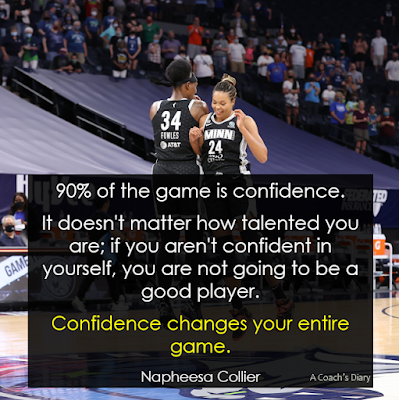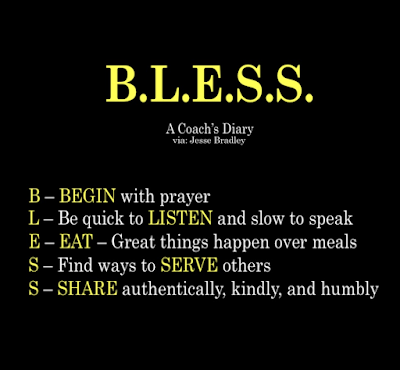Former NBA champion Joe Dumars once said, "On good teams, coaches hold players accountable; on great teams, players hold players accountable."
Accountability is an obligation or willingness to accept responsibility for your actions.
Accountable teammates know what is expected of them, and they are empowered to do their best work, while teammates without accountability lack the motivation and discipline needed to achieve their goals.
A lack of accountability is one of the biggest problems that can hold teams back. When nobody wants to be at fault or take responsibility for their mistakes, there can be a lot of finger-pointing and blame within the team. Doing the little things right, every day, like showing up on time, touching the line, and doing your job can be the difference between a winning season and a losing season.
Great teams can't just rely on great coaching to hold teammates accountable; teammates have to be able to do that for each other, and teammates have to be willing to listen to each other and follow each other's lead.
You can build accountability by establishing clear roles, expectations, and responsibilities, and by creating an atmosphere where people are comfortable being honest with each other.
In Matthew, Jesus gives us Biblical instructions on how to hold each other accountable. In Matthew 18:15-17, Jesus tells us how to correct another believer:
"If another believer sins against you, go privately and point out the offense. If the other person listens and confesses it, you have won that person back. But if you are unsuccessful, take one or two others with you and go back again, so that everything you say may be confirmed by two or three witnesses. If the person still refuses to listen, take your case to the church. Then if he or she won't accept the church's decision, treat that person as a pagan or a corrupt tax collector."
I love how Jesus says to start by going privately and pointing out the offense. Some teammates don't mind being addressed publically, but it's probably wise to start small when trying to hold teammates accountable. If you call some teammates out too loud or too publicly, they might shut you out by not listening or responding, or worse, they might fight back. Figure out what works for you, and be flexible enough to be able to use different methods when addressing issues with teammates because what works for you or for one teammate might not work for everybody.
I love how Jesus then says to take one or two others with you if you aren't successful going at it alone. Don't just give up on your teammates; diligently search for ways to connect with each other and help each other grow.
Holding your teammates accountable can be scary and sometimes difficult at first, but don't be afraid to speak up. Leadership requires courage. Courage is not the absence of fear, but the ability to do things afraid. Every great team requires great leadership, and great leadership requires great courage.
Find your voice and find ways to effectively lead by setting a great example and by using your voice.
THIS WEEK
1 - How do you want your coaches to praise you and hold you accountable; publicly or privately?
2 - How do you want your teammates to praise you and hold you accountable; publicly or privately?
3 - How are you comfortable holding your teammates accountable?
4 - When is it easiest for you to hold your teammates accountable?
5 - When is it the hardest for you to hold your teammates accountable?
6 - When it gets hard, what is something that you can do to find the courage you need to speak up and hold your teammates accountable?
For a Google doc version of this devo, click here: Great Teammates Hold Each Other Accountable
For God has not given us a spirit of fear and timidity, but of power, love, and self-discipline (2 Timothy 1:7).











